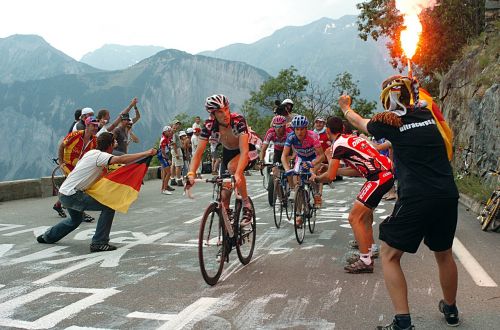It is too soon to decide whether the Tour de France can go ahead amid the coronavirus pandemic, but if it does it may be without roadside spectators in order to minimise infection risk, the French sports minister said.
Following the postponement of the Euro 2020 soccer Championship and the Tokyo Olympic Games, the Tour de France – which takes place in June and July – is one of the last major global sporting events that has not yet been cancelled or postponed.
“The Tour is a sports monument. It is too soon to decide. There is a time for everything. For now, we have a more urgent battle to fight. Let us focus on this mountain in front of us and then consider what’s next,” French Sports Minister Roxana Maracineanu wrote on Twitter.
Since the Tour’s inception in 1903, only the two world wars of 1914-1918 and 1939-1945 have forced organisers to cancel the race.
A Sports ministry spokeswoman told Reuters on Thursday that the ministry was monitoring the pandemic’s evolution.
“There is no rush to decide today,” she said, 92 days ahead of the Tour’s scheduled June 27 start in the Mediterranean city of Nice. It is due to finish in Paris on July 19.
In an interview with radio station France Bleu late on Wednesday, Maracineanu said that one option would be to organise a Tour without roadside spectators.
“The Tour’s economic model is not based on ticket sales but on TV rights. During this period of confinement, everybody is aware of the risks and responsible,” the minister said.
“People understand the benefits of staying home and watching event on TV rather than live. It would not be too detrimental to follow the Tour on TV.”
The Tour attracts more than 10 million spectators along France’s roads every year and is broadcast globally.
However, Marc Madiot, the president of the French cycling league and director of the Groupama–FDJ cycling team said it would be difficult to police a Tour without spectators.
“How would you stop the public from attending?” he said.
France’s 67 million people have broadly respected the conditions of an unprecedented peacetime lockdown but few sports stir the passions of French sports enthusiasts more than cycling.
Moreover, riders often race large parts of a stage in closely-packed groups and team members live in close proximity to one another for nearly a month in hotels, and travel together on buses and airplanes that shuttle them between stages.
Teams are already grappling with how to keep their riders fit after the cycling season was suspended last week. All races up until the end of April have been cancelled.
“As long as we are not allowed to get out on the road, it is hard to think about getting in shape for the event,” AG2R-La Mondiale rider Romain Bardet told France Bleu.






